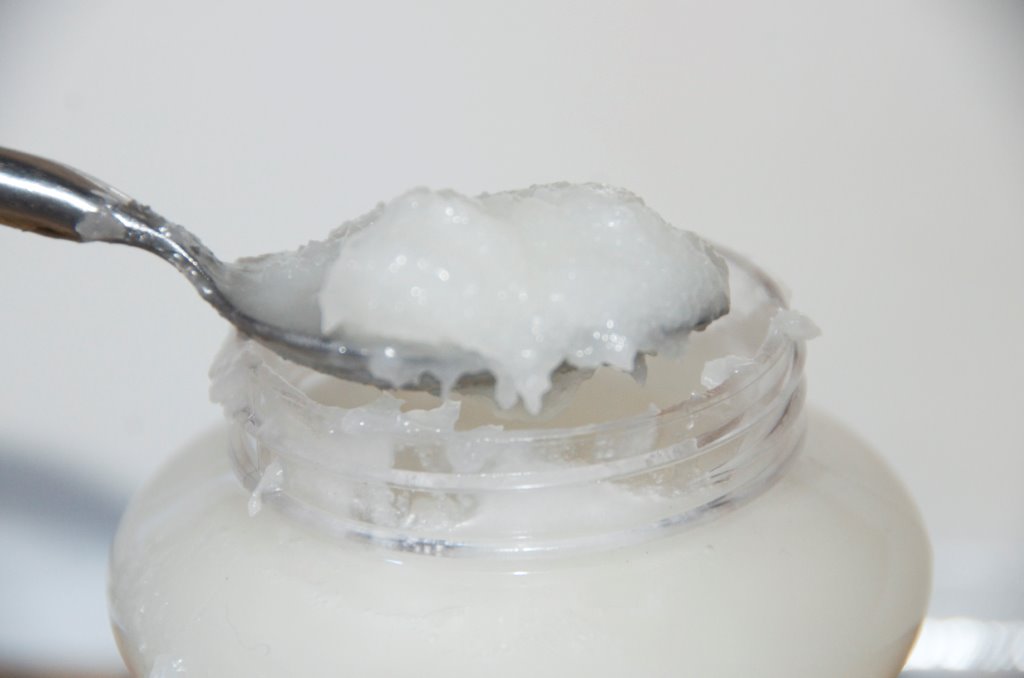
Organic Virgin Coconut Oil for Dogs & Cats – why not give coconut oil a try as it offers many health benefits for your dog and cat such as improving digestion, supporting skin and coat health, reducing allergic reactions, providing energy and much more! Coconut Oil is anti bacterial, anti viral and anti fungal.
What is Coconut Oil
-
Coconut oil is a food grade oil and has a long history of safe and effective use as a food supplement for both humans and animals. According to the Coconut Research Centre, [1] coconut oil is described as the ‘healthiest oil on earth’ and has been used to treat a wide range of health conditions. It is extracted from the coconut meat of matured coconuts and is liquid in warm temperatures and solid at room temperature.
-
Coconut oil provides an immediate source of energy. It is 90% saturated fat, mostly from medium chain triglycerides. (MCT’s) We are increasingly aware that not all saturated fats are bad and it is these unique medium chain triglycerides, which give this amazing oil many of its health benefits for your pets, including immune, digestion, skin and metabolic support. Medium chain triglycerides are not stored as fat in the body, but are utilised immediately by the liver as a source of energy. Therefore adding coconut oil routinely to your pet’s meal, not only boosts metabolism and speeds fat loss but also creates sustained energy release.
-
Coconut oil has anti-microbial properties. Roughly half the fat in coconut oil is lauric acid, (found in mothers milk) followed by capric acid, caprylic acid, myristic acid and palmitic acid. Lauric acid converts to monolaurin which is anti-microbial and can therefore support the immune system and destroy viruses, bacteria and fungi. Capric and caprylic acids have similar properties to lauric acid and are known for their anti-fungal effects.
Which Coconut Oil to Use?
The better choices of coconut oil are those which state they are cold pressed extracted at the lowest possible temperature, avoiding heat which degrades oils of their nutritional benefits in addition to exposing the oil to toxins. Also those which are: unbleached, virgin and organic.
What are the benefits to giving coconut oil to my pets?
Coconut oil is very easy for your pet to digest, absorb and process and regular feeding of this healthy oil may provide the following multiple benefits:
-
Digestion – supports digestion and nutrient absorption. Soothes and supports the gut and aids the passing of food. Aids in the elimination of hair balls. Reduces bad breath in dogs
-
Skin & Teeth (when topically applied) – supports skin and coat health - moisturises dry flaky skin, soothes skin irritations and skin allergies. Helps prevent and treat yeast and fungal infections. Promotes the healing of hot spots, wounds, cuts, bites and stings. Reduced doggy odour. Supports healing of dry cracked paw pads and chapped noses. Can be used to clean gums and teeth
-
Immune Support and Metabolic Support - Contains anti-bacterial, anti-fungal, anti-viral and anti-parasitic properties that help prevent infections. Helps reduce inflammation [2]. Helps to support hormone balance and normal blood sugar levels. Improves energy and metabolism. Increases fat burning and helps support a healthy body weight in overweight pets. MCTs in coconut oil balance the thyroid. Supports brain health.
-
Bone Health – Can aid in arthritis, joint pain or ligament problems as the lauric acid in coconut oil has anti-inflammatory properties [3, 4]
How to Use Coconut Oil for Your Pet

It is important to add coconut oil to your pet’s food slowly, since it will take some time for your pet’s digestive system to adjust to the addition of a new food supplement. Too much too soon could cause diarrhoea or a greasy stool.
Amount: The recommended dosage for daily maintenance is approximately half a teaspoon for every 5 kg or 10 pounds body weight each day. You will want to start with half the recommended amount for the first several days, especially if your pet has a sensitive digestive system. If your pet appears to have a reaction or to appear uncomfortable after introducing coconut oil, then stop for a few days and re-introduce VERY SLOWLY.
To help with a specific condition, the amount can be increased to 1 teaspoon for every 5 pounds body weight, but again, just increase very slowly.
For Topical Use
Coconut oil can be applied directly to your animal’s skin or coat. No dilution is necessary. There is a saying that if you can’t eat it then don’t put it on your skin. Since you can eat coconut oil, it is safe for use on your pet’s skin and coat. Using a clean spoon put a small amount into the palm of a clean hand and apply locally to dry or irritated areas of the animal’s skin. Allow this to soak in for 5-10 minutes. Excess oil can be removed with a quick water rinse or a light shampoo.
Do give coconut oil a try with your pets. It is natural and offers so many benefits to help optimise their health. But as with any other supplements, please do not use this to treat an illness or condition in your pet, without consulting your pet’s veterinarian.
Sources:
- Coconut Research Centre. (2004) (Cocus Nucifera.) The Tree of Life.[Online] Available at: http://www.coconutresearchcenter.org/
- Intahphuak S, Khonsung P, Panthong A.(2010) Anti-inflammatory, analgesic, and antipyretic activities of virgin coconut oil. Pharm Biol. 48(2):151-7 http://www.ncbi.nlm.nih.gov/pubmed/20645831
- Dogs Naturally Magazine (2015). “The Health Benefits of Coconut Oil For Dogs” [Online] Available at: http://www.dogsnaturallymagazine.com/the-health-benefits-of-coconut-oil/
- Parker, K.T. (2015). “Is Coconut Oil an Anti-inflammatory” [Online] Available at: http://www.livestrong.com/article/518452-is-coconut-oil-an-anti-inflammatory/





